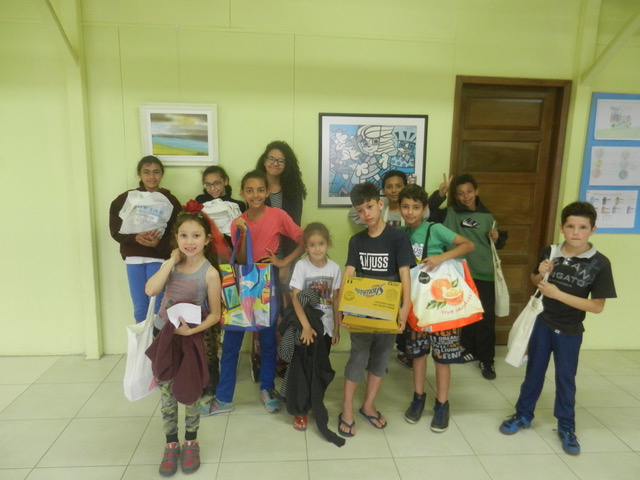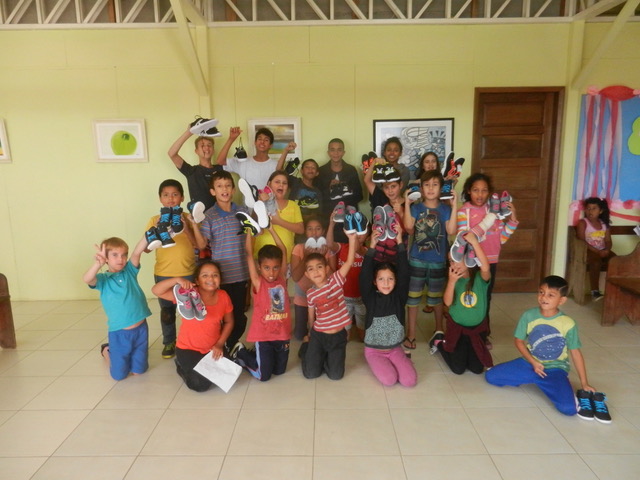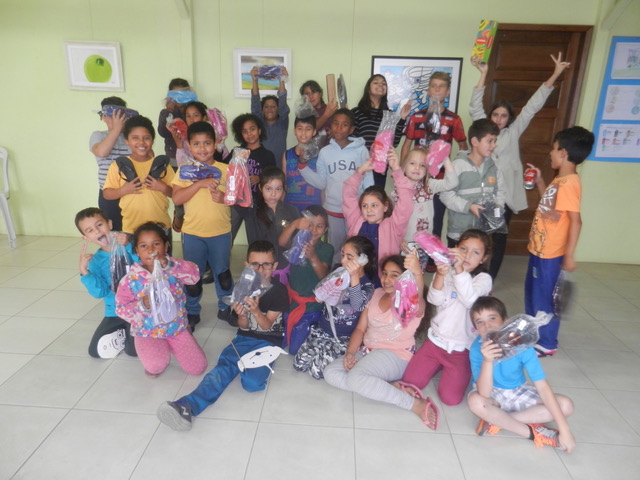facts about THE CADI Center:
- Ages Served: Children between 4 and 17 are assisted at the center.
- Facility Description: The center comprises spacious classrooms, laboratories for their art and robotics programs, and offices.
- Education: The school-aged children attend nearby public schools, where core academic subjects are taught. The center provides school supplies, tutoring, and after-school programs.
- Academic Year: It typically begins in early February and ends in early December. Students enjoy summer break from mid-December through the end of January and a short winter break in July.
- Nutrition: A small, nutritious meal is provided for the children daily.
- Medical Care: Children’s health is monitored with the assistance of volunteer medical personnel. Psychological treatment or counseling is also available for children in need of support.
Brazil is the fifth-largest country in the world – both geographically and in terms of population. It is truly massive, sharing borders with every other country in South America except for Ecuador and Chile. The Amazon rain forest – recognized for having the greatest biological diversity on the planet – sprawls over the country’s northern half, with rugged mountains to the south. Despite its wealth of natural resources and beauty, Brazil suffers from staggering poverty, rising inflation, unemployment, and lack of social development. These issues are especially pronounced in Fazenda Rio Grande, a town on the outskirts of Curitiba in southern Brazil. Here, many families struggle to afford even the most basic of needs, let alone education-related expenses for their children.
What began in 1994 as a soccer school to motivate and assist the children of these low-income families has now become CADI (Centro de Assistência e Desenvolvimento Integral) – a national nonprofit that maintains a center of holistic development in Fazenda Rio Grande. The CADI center’s mission is to motivate and equip these deserving children to rise above the difficult socioeconomic circumstances from which they come, thus breaking the cycle of poverty.
Facts about brazil:
- Population: 212.5%
- Languages Spoken: Portuguese (official). Less common languages include Spanish (border areas and schools), German, Italian, Japanese, English, and a large number of minor Amerindian languages.
- Poverty Rate: 19.8%
- Unemployment Rate: 11%
READ MORE STORIES FROM OUR sites IN Brazil:
Supporting Children in Brazil Who Face Trauma
Growing Vegetables at Home in Brazil
A Fully-Baked Idea Brings Economic Stability to Brazilian Moms



